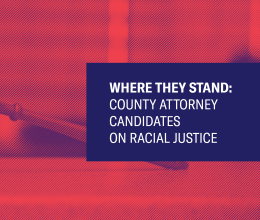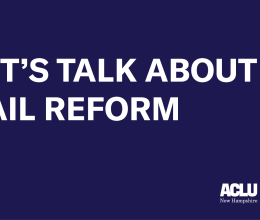
On March 4, 2014, a 22-year-old poor, single mother of two children was ordered to jail if she did not pay by the end of the day an outstanding $420 fine resulting from a violation-level conviction—a conviction, itself, which does not permit a jail sentence. The Circuit Court did not conduct a hearing on the woman’s ability to pay the fine. Because the woman couldn’t pay this fine, she was jailed that afternoon. She didn’t have the means to pay the fine, in part, because her apartment was rendered uninhabitable by a fire in January 2014, and she had spent the last two months trying to rebuild her life after this disaster. With one day in jail equating to each $50 of the remaining $420 fine, she was slated to be in jail for nine (9) days.
The next day—after the woman had spent one night in jail—the ACLU-NH filed with the Superior Court an emergency petition for a writ of habeas corpus seeking the woman’s immediate release. As explained in the petition, “[t]he Circuit Court’s order is unconstitutional and must be immediately vacated because Defendant is financially unable to pay this $420 amount, as she is indigent and is therefore not wilfully failing to pay this fine.” In an important victory, the Superior Court issued a decision immediately granting the ACLU-NH’s petition and ordering that the woman “be released on an immediate basis.”

